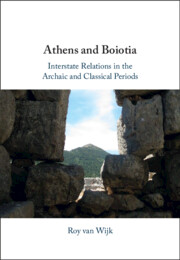References to authors are in line with the Oxford Classical Dictionary (OCD4), while abbreviations for journals follows the standards set by L’Année Philologique.
Unless otherwise stated, all literary translations are taken from the Loeb Classical Library, or with minor adjustments. The choice to omit most Greek text is due to their availability online; it is added only when translations need clarification. Most inscriptions are accompanied by Greek text taken from the versions provided in IG or SEG.
The transliteration of Greek names and terminology is a contentious issue; rather than submitting to one dogmatic approach, I have opted to go for clarity and fluidity. In certain cases, this leads to the Greek form (Boiotia, rather than Boeotia) while in others, I adhere to more commonly used Latin names (Thucydides instead of Thoukydides). Moreover, I mostly refer to ‘the Athenians’ rather than Athens when it comes to treaties or decision-making. While in some cases this makes for more expanded verse, I do believe it is closer to the true nature of political interactions, especially in antiquity. Furthermore, I only capitalise the Persian royal title (‘King’) as is more common practice, whereas other monarchs are referred to as ‘king’.
All maps are made by the author with the help of the QGIS programme and the databases accrued by the Ancient World Mapping Centre, unless otherwise stated.
Unless otherwise stated, all dates are BCE.

